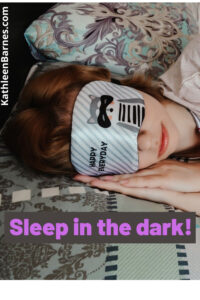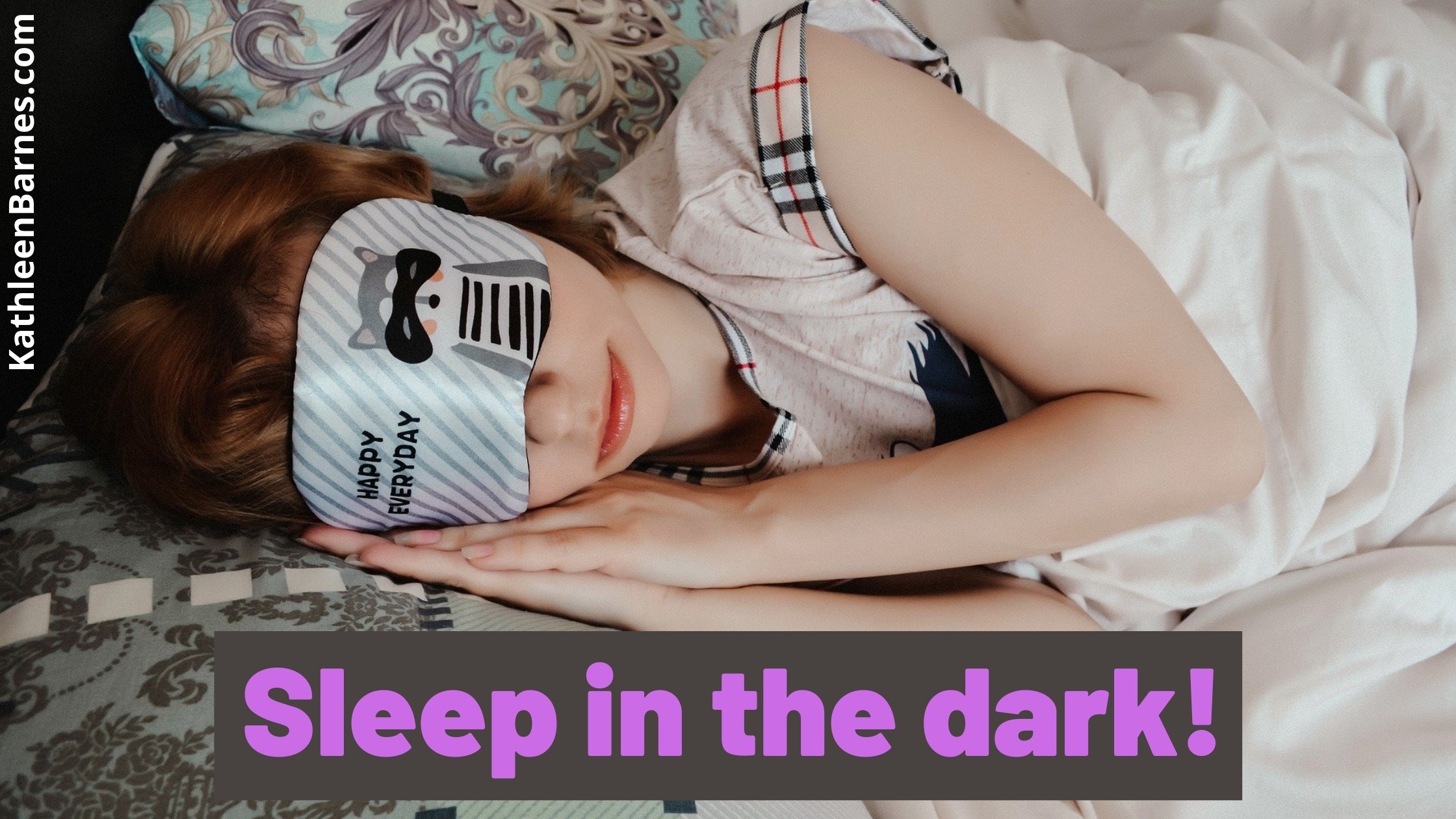 It seems like a no-brainer (pardon the pun), but sleeping with lights on or –- horror of horrors—the television screen flickering – is bad for your brain and bad for your health.
It seems like a no-brainer (pardon the pun), but sleeping with lights on or –- horror of horrors—the television screen flickering – is bad for your brain and bad for your health.
In these times of COVID, it’s important to care for ourselves like never before. We’re all stressed, we’re all concerned about getting sick ourselves or our loved ones getting sick. That’s why this month I’m giving you lots of tools to care for yourself, make yourself stronger and calmer.
So, back to the importance of a great night’s sleep.
Recent research shows that exposure to even the dimmest light at night – such as a nightlight or a crack under the door– can cause changes in your brain that can interrupt your sleep, resulting in mood disorders, depression and a host of serious health problems.
Sleeping with lights on disrupts the natural production of the hormone melatonin by the pineal gland. Melatonin, produced only during the complete absence of light, has many functions, including the manufacture of serotonin, the brain chemical that give us a sense of calm and well-being.
Melatonin deficiency can cause a host of frightening health problems, including:
• Decreased immune function
• Accelerated cancer cell proliferation and tumor growth (including leukemia)
• Blood pressure instability
• Decreased free radical scavenging
• Increased plaques in the brain, like those seen with Alzheimer’s disease
• Increased risk of osteoporosis
• Diabetic microangiopathy (capillary damage)
Wow! I don’t want to encourage any of those disease conditions and I’m sure you don’t, either.
What’s more, many studies link melatonin deficiency and depression, especially seasonal affective disorder. This is a particular problem among post-menopausal women.
It’s as simple as this: Your body cannot produce melatonin unless you are sleeping the dark. Even a street light can be a problem. Many prescription anti-depressants trigger the production of serotonin, but you can do it quite easily on your own with some simple good sleep habits.
I have two family members who sleep with the television on. They are both women who live alone and they say it provides companionship. Not surprisingly, both of them suffer from depression and some of the other health problems on this list.
There are some very simple solutions:
• Turn off all light sources at night (even covering clock radios with light displays)
• Close your bedroom door. If there is light outside the door, place a towel at the bottom of the door to seal the crack.
• Get some blackout curtains.
• Use a sleep mask.
• Silence is also best for restful sleep, but if you really must have some sound in order to sleep or if you live in a noisy neighborhood, get one of those inexpensive white noise machines or ask Alexa to play some soothing music.
• If you need to get up at night (most of us post-menopausal women do!), keep a flashlight by the bed and use it for as brief a period as possible to avoid a fall.
I’m just talking about melatonin here, but there are many serious health consequences of poor sleep habits and the melatonin shortfall is just one of many.
I’ll go into some other recommendations for sleep hygiene in future posts, but for now, turn off those night lights and, for pity’s sake, turn off the TV!







